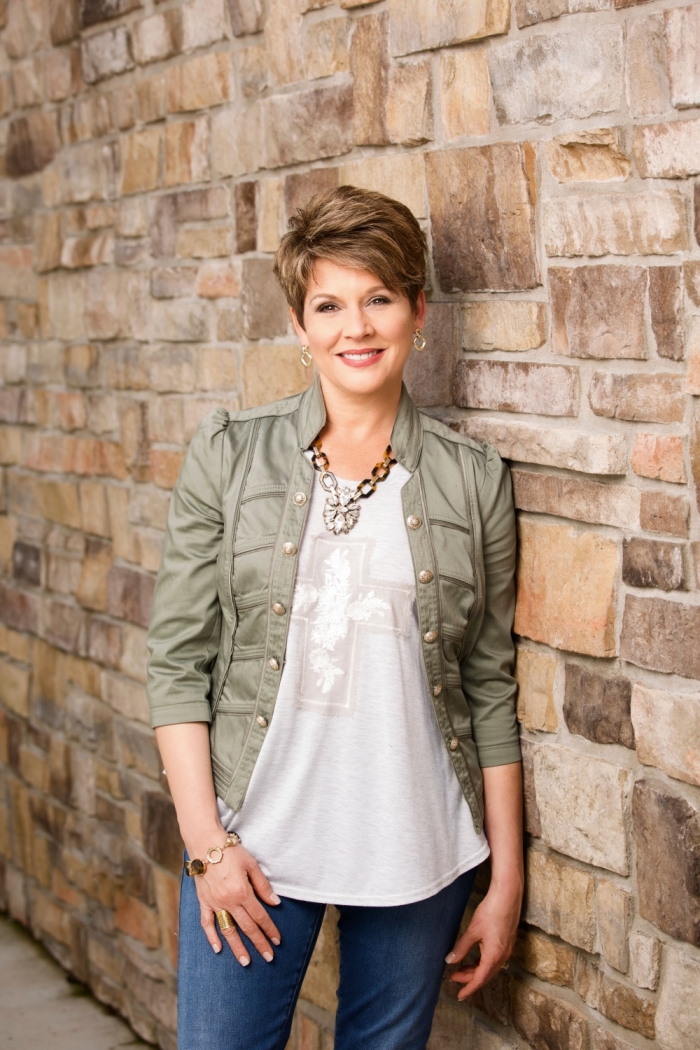Author Jennifer Rothschild to Women: Seek Truth Instead of 'Other Lovers'

After losing her sight at the age of 15, Jennifer Rothschild's life changed drastically as blindess exacerbated her feelings of insecurity and insignificance, and weakened her sense of identity. In her new book Invisible: How You Feel is Not Who You Are (Harvest House, 2015), Rothschild encourages women to find their self-worth in Christ and shares practical ministry tools that helped her turn to God and prayer for direction in her life.
Invisible reflects on the biblical love story between Hosea, the preacher, and Gomer, an Israelite woman. Gomer's insecurities cause her to leave her husband and children in search of her own desires. Despite this betrayal, Hosea does the unthinkable. In obedience to God, he seeks out his wife, rescues her from slavery, and brings her back home.
The following is an edited transcript of Rothschild's interview with The Christian Post in which she discusses self-doubt, seeking "other lovers," and forgiveness.
CP: I love your transparency and willingness to be vulnerable about your own struggles in Invisible. Why was it important for you to share about your physical insecurities?
Rothschild: What we aren't honest about, we are never free from. So, I am all about being free from the lie that I am what I look like, or what I do, or how I feel. I want my reader to be free too. So, through my own honesty with the reader, I hope to prompt her to be honest with herself too. That what she is honest about, she can be free from too! Life is too short and women are too valuable to be stuck in lies and insecurity when God has given us beautiful identity in Him. When we let go of the lies of who we think we should be or wish we were, we can embrace the truth of who we are in Christ.
CP: Some may think insecurity arises from what we see and compare, but you went blind at a young age and still have struggles. Where do you think these attacks are birthed?
Rothschild: Oh how I wish insecurity was only based on what we see … I would be free from it, right? Wrong. Feeling insecure has nothing to do with what we see; it has everything to do with what we think. When we don't embrace the truth that we are loved, we will seek proof that we are loved, accepted, complete. The enemy of our souls wants us to believe that we aren't accepted or loved or complete because if we believe those lies, we will go to what I call, "other lovers" to find acceptance, love and wholeness. And, if we go for "other lovers," that means we leave our best Love — our True Love — the Lover of our souls — God Himself. In many ways, that is what Gomer, in the Old Testament, did. She left Hosea, her best love, true love, and all he gave her, which included security and identity, and went off to other lovers to find what she already had. The result? She ended up in slavery. The same happens to us. When we leave the identity and security we have in God and go for "other lovers" of approval, popularity or success — the result is that we, too, become enslaved by the insecurity they create. "Am I good enough?" "Am I successful enough?" "Will I be loved if I fail?"
CP: How dangerous can insecurity be?
Rothschild: The danger comes when we don't recognize it for what it is and what it represents. It is human to feel insecure every now and then. It's nothing to be ashamed of — it doesn't represent a lack of faith. Insecurity is a symptom of a bigger problem and the bigger problem is what is most dangerous. That is why we need to recognize insecurity when we feel it so that it can reveal the bigger problem, and … the bigger problem? Feelings of insecurity are a symptom of a lack of knowledge. Yes, the bigger problem is a lack of knowledge of who God is. Hosea 4:4 says we are destroyed by lack of knowledge. When we don't know who God is; when we don't know His truth and love, we will never really know who we are — our value, our identity. Of course, we will feel insecure when we don't know our own value and identity. That is why knowledge of God is the solution.
CP: Although an amazing story of forgiveness and perseverance, the account of Hosea and Gomer is not a very popular sermon. What made you use it for Invisible?
Rothschild: I drew from the story of Gomer and Hosea to help women understand their identity because we are all like Gomer. In the book I write, "There is a me in GoMEr!" What I mean by that is that we are all loved, chosen and prone to wander. We are all prone to leave God and His truth, which is our source of self, and when we do, we lose our sense of who we are.




























